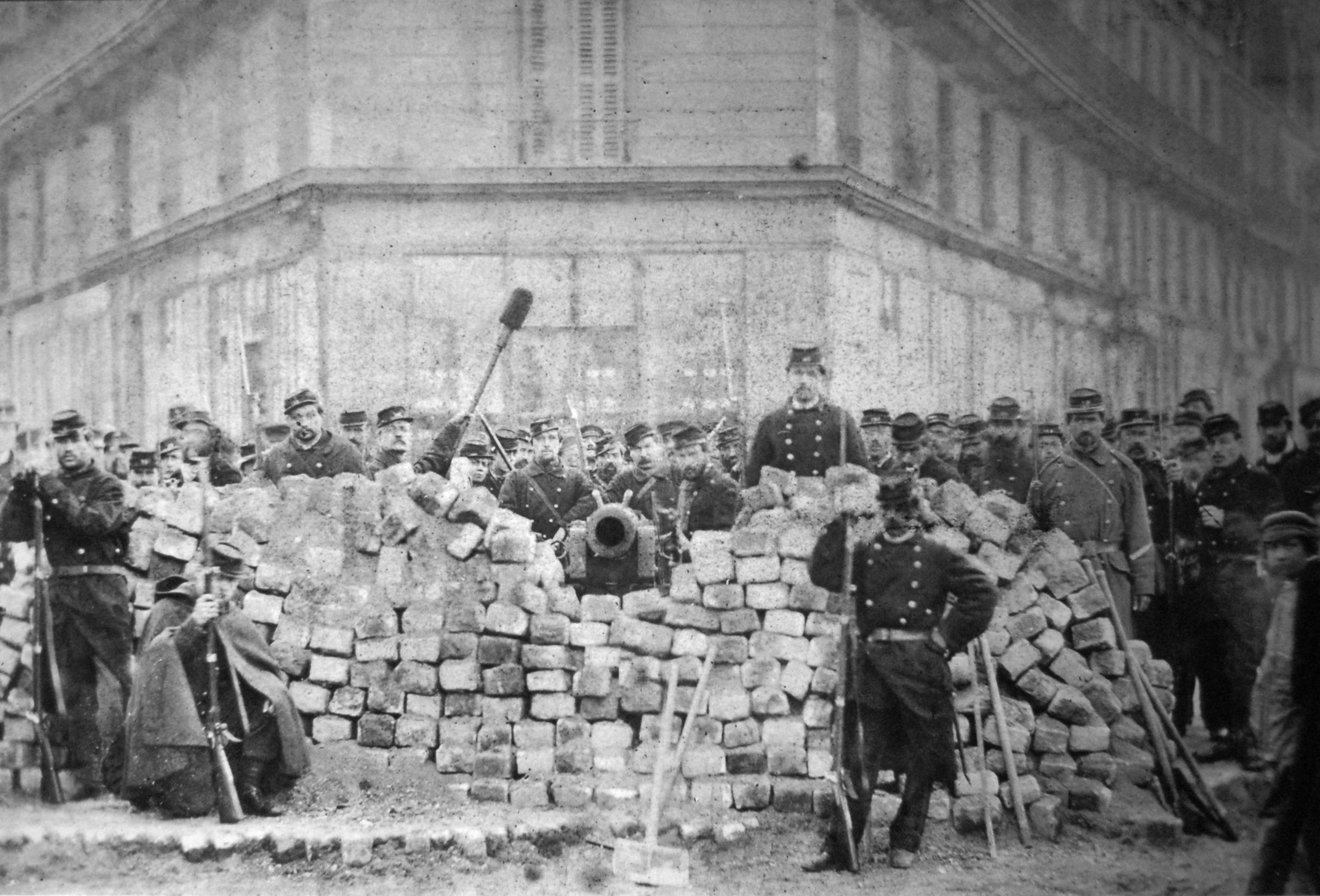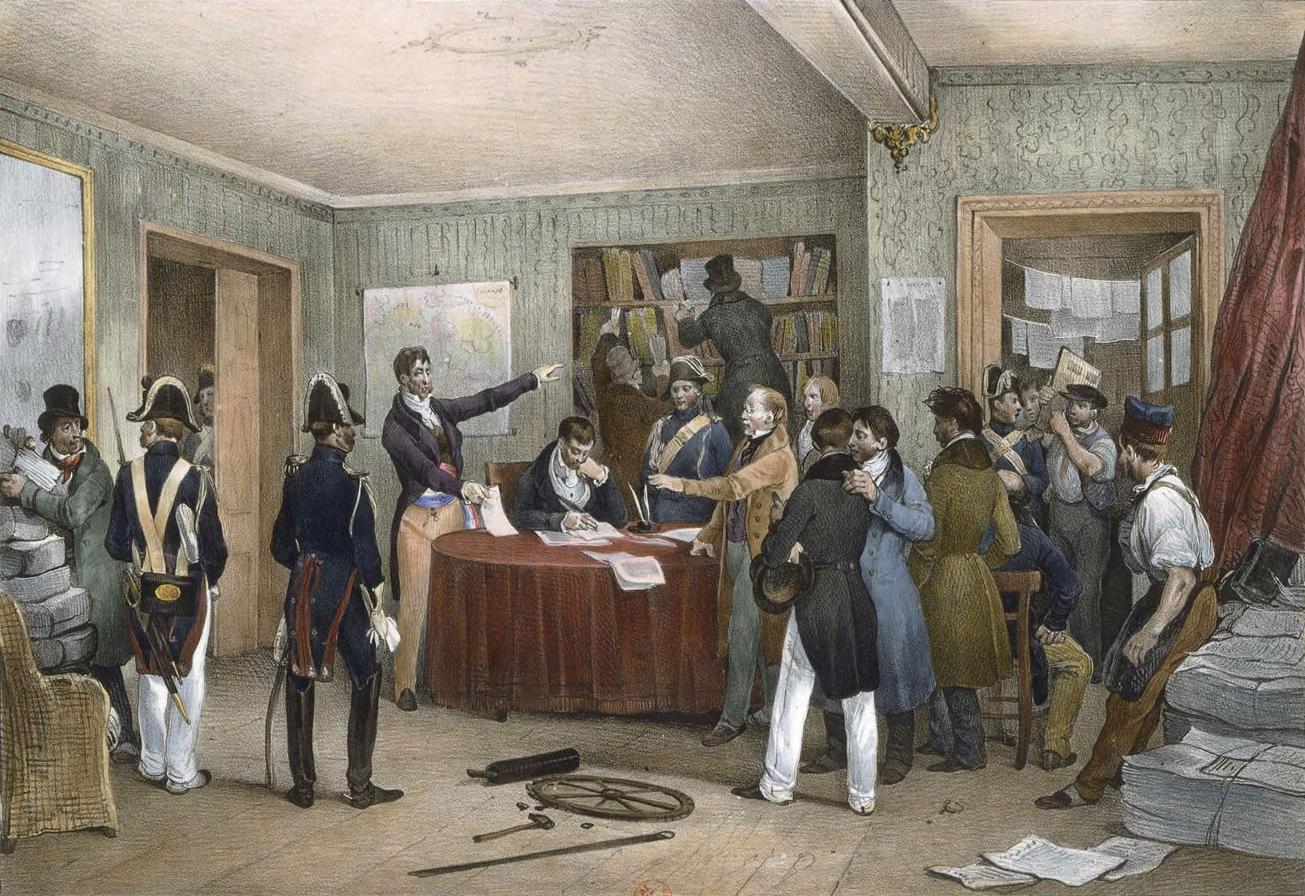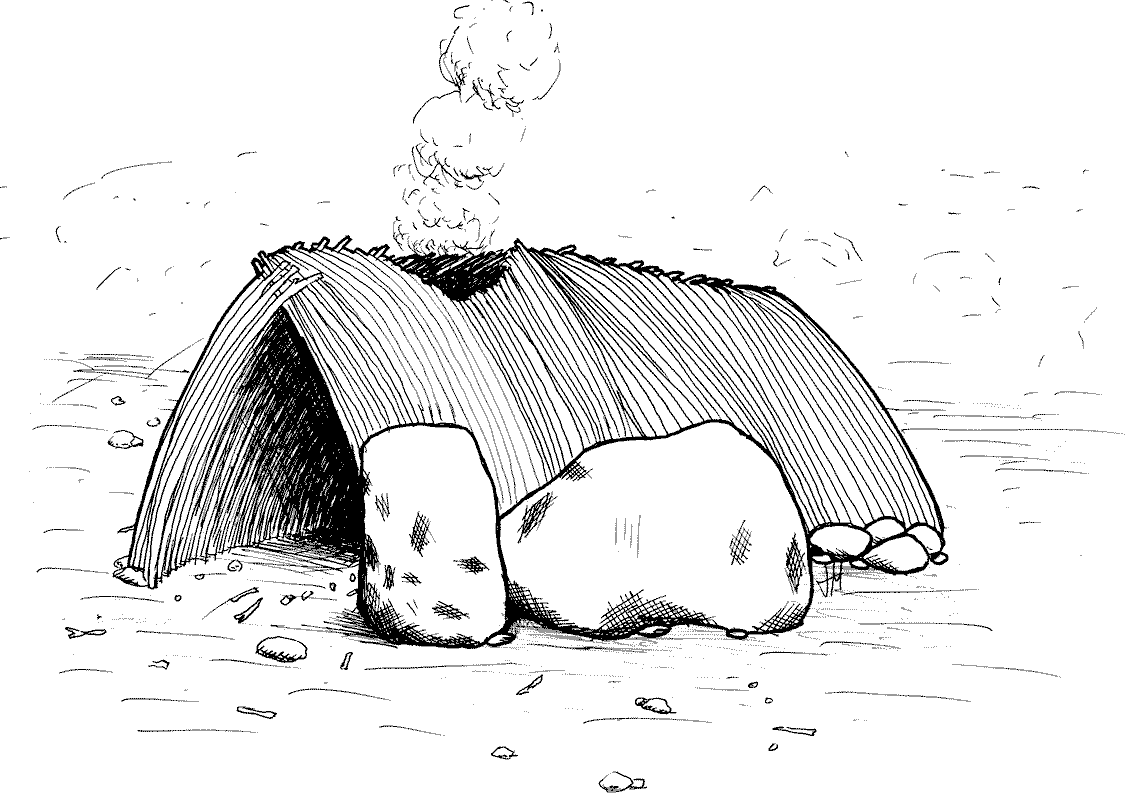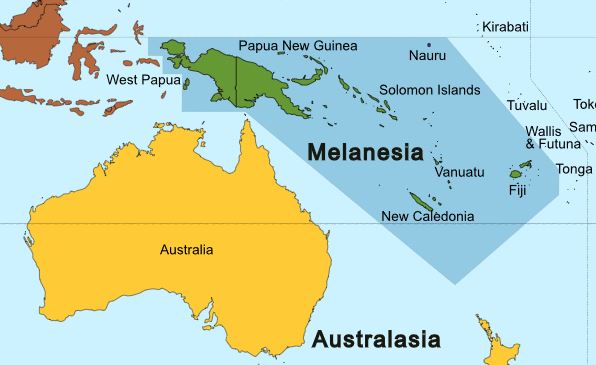|
Communards
The Communards () were members and supporters of the short-lived 1871 Paris Commune formed in the wake of the French defeat in the Franco-Prussian War. After the suppression of the Commune by the French Army in May 1871, 43,000 Communards were taken prisoner, and 6,500 to 7,500 fled abroad.Milza, 2009a, pp. 431–432 The number of Communard soldiers killed in combat or executed afterwards during the week has long been disputed— Prosper-Olivier Lissagaray put the number at 20,000, while estimates by more recent historians put the probable number between 10,000 and 15,000. 7,500 were jailed or deported under arrangements which continued until a general amnesty during the 1880s; this action by Adolphe Thiers forestalled the proto-communist movement in the French Third Republic (1871–1940). Franco-Prussian War and the Paris Commune The working class of Paris were feeling ostracized after the decadence of the Second Empire and the Franco-Prussian War. The Prussians be ... [...More Info...] [...Related Items...] OR: [Wikipedia] [Google] [Baidu] |
Paris Commune
The Paris Commune (, ) was a French revolutionary government that seized power in Paris on 18 March 1871 and controlled parts of the city until 28 May 1871. During the Franco-Prussian War of 1870–71, the French National Guard (France), National Guard had defended Paris, and working-class radicalism grew among its soldiers. Following the establishment of the French Third Republic in September 1870 (under French chief-executive Adolphe Thiers from February 1871) and the complete defeat of the French Army by the Germans by March 1871, soldiers of the National Guard seized control of the city on 18 March. The Communards killed two French Army generals and refused to accept the authority of the Third Republic; instead, the radicals set about establishing their own independent government. The Commune governed Paris for two months, promoting policies that tended toward a Progressivism, progressive, anti-clericalism , anti-religious system, which was an eclectic mix of many 19th-cent ... [...More Info...] [...Related Items...] OR: [Wikipedia] [Google] [Baidu] |
Semaine Sanglante
The ''Semaine sanglante'' ("") was a weeklong battle in Paris from 21 to 28 May 1871, during which the French Army recaptured the city from the Paris Commune. This was the final battle of the Paris Commune. Following the Treaty of Frankfurt (1871), Treaty of Frankfurt and France's loss in the Franco-Prussian War, on 18 March the new French government under Prime Minister Adolphe Thiers attempted to remove a large number of cannon from a park in Montmartre, to keep them out of the hands of the more radical soldiers of the Paris National Guard (France), National Guard. In the confrontation that followed, two French generals were seized and executed by the National Guard. Thiers, the army commander Patrice de MacMahon and the French government hurriedly left the city, and established their headquarters in Palace of Versailles, Versailles, and prepared plans to recapture the city. The Paris Commune made an unsuccessful attack on Versailles under the leadership of Louis Charles De ... [...More Info...] [...Related Items...] OR: [Wikipedia] [Google] [Baidu] |
Franco-Prussian War
The Franco-Prussian War or Franco-German War, often referred to in France as the War of 1870, was a conflict between the Second French Empire and the North German Confederation led by the Kingdom of Prussia. Lasting from 19 July 1870 to 28 January 1871, the conflict was caused primarily by France's determination to reassert its dominant position in continental Europe, which appeared in question following the decisive Austro-Prussian War, Prussian victory over Austria in 1866. According to some historians, Prussian chancellor Otto von Bismarck deliberately provoked the French into declaring war on Prussia in order to induce four independent southern German states—Grand Duchy of Baden, Baden, Kingdom of Württemberg, Württemberg, Kingdom of Bavaria, Bavaria and Grand Duchy of Hesse, Hesse-Darmstadt—to join the North German Confederation. Other historians contend that Bismarck exploited the circumstances as they unfolded. All agree that Bismarck recognized the potential for new ... [...More Info...] [...Related Items...] OR: [Wikipedia] [Google] [Baidu] |
New Caledonia
New Caledonia ( ; ) is a group of islands in the southwest Pacific Ocean, southwest of Vanuatu and east of Australia. Located from Metropolitan France, it forms a Overseas France#Sui generis collectivity, ''sui generis'' collectivity of the French Republic, a legal status unique in overseas France, and is enshrined in a dedicated chapter of the French Constitution. The archipelago, part of the Melanesia subregion, includes the main island of Grande Terre (New Caledonia), Grande Terre, the Loyalty Islands, the Chesterfield Islands, the Belep archipelago, the Isle of Pines (New Caledonia), Isle of Pines, and a few remote islets. The Chesterfield Islands are in the Coral Sea. French people, especially locals, call Grande Terre , a nickname also used more generally for the entire New Caledonia. Kanak people#Agitation for independence, Pro-independence Kanak parties use the name (''pron.'' ) to refer to New Caledonia, a term coined in the 1980s from the ethnic name of the indi ... [...More Info...] [...Related Items...] OR: [Wikipedia] [Google] [Baidu] |
Adolphe Thiers
Marie Joseph Louis Adolphe Thiers ( ; ; 15 April 17973 September 1877) was a French statesman and historian who served as President of France from 1871 to 1873. He was the second elected president and the first of the Third French Republic. Thiers was a key figure in the July Revolution of 1830, which overthrew King Charles X of France, Charles X in favor of the more liberal King Louis Philippe, and the French Revolution of 1848, Revolution of 1848, which overthrew the July Monarchy and established the Second French Republic. He served as a prime minister in 1836 and 1840, dedicated the Arc de Triomphe, and arranged the return to France of the remains of Napoleon from Saint-Helena. He was first a supporter, then a vocal opponent of Louis-Napoléon Bonaparte (who served from 1848 to 1852 as President of the Second Republic and then reigned as Emperor Napoleon III from 1852 to 1871). When Napoleon III seized power, Thiers was arrested and briefly expelled from France. He then retur ... [...More Info...] [...Related Items...] OR: [Wikipedia] [Google] [Baidu] |
Proto-communist
When Karl Marx and Friedrich Engels defined communism as a political movement in 1848, similar ideas had already been used as a base for one could call communist experiments. Marx himself saw the original hunter-gatherer state of humankind as primitive communism and also researched pre-existing communistic experiences such as the Paris Commune. Marx theorized that only after humanity was capable of producing surplus did private property develop, and thus only then did communism slip from being the dominant form of society. Pre-history Karl Marx and other early communist theorists believed that hunter-gatherer societies as were found in the Paleolithic through to horticultural societies as found in the Chalcolithic were essentially egalitarian and he, therefore, termed their ideology to be primitive communism. Since Marx, sociologists and archaeologists have developed the idea of and research on primitive communism. According to Harry W. Laidler, one of the first writers to ... [...More Info...] [...Related Items...] OR: [Wikipedia] [Google] [Baidu] |
Barricade Voltaire Lenoir Commune Paris 1871
Barricade (from the French '' barrique'' - 'barrel') is any object or structure that creates a barrier or obstacle to control, block passage or force the flow of traffic in the desired direction. Adopted as a military term, a barricade denotes any improvised field fortification, such as on city streets during urban warfare. Barricades also include temporary traffic barricades designed with the goal of dissuading passage into a protected or hazardous area or large slabs of cement whose goal is to prevent forcible passage by a vehicle. Stripes on barricades and panel devices slope downward in the direction traffic must travel. There are also pedestrian barricades - sometimes called bike rack barricades for their resemblance to a now obsolete form of bicycle stand, or police barriers. They originated in France approximately 50 years ago and are now used around the world. They were first used in the U.S. 40 years ago by Friedrichs Mfg for New Orleans's Mardi Gras parades. A ... [...More Info...] [...Related Items...] OR: [Wikipedia] [Google] [Baidu] |
Versailles, Yvelines
Versailles ( , ) is a commune in the department of the Yvelines, Île-de-France, known worldwide for the Château de Versailles and the gardens of Versailles, which is designated an UNESCO World Heritage Sites. Located in the western suburbs of the French capital, from the centre of Paris, Versailles is a wealthy suburb of Paris with a service-based economy and is a major tourist destination. According to the 2017 census, the population of the city is 85,862, down from a peak of 94,145 in 1975.Population en historique depuis 1968 , INSEE A founded by order of King |
Atheism
Atheism, in the broadest sense, is an absence of belief in the Existence of God, existence of Deity, deities. Less broadly, atheism is a rejection of the belief that any deities exist. In an even narrower sense, atheism is specifically the position that there no deities. Atheism is contrasted with theism, which is the belief that at least one deity exists. Historically, evidence of atheistic viewpoints can be traced back to classical antiquity and Nāstika, early Indian philosophy. In the Western world, atheism declined after Christianity gained prominence. The 16th century and the Age of Enlightenment marked the resurgence of atheistic thought in Europe. Atheism achieved a significant position worldwide in the 20th century. Estimates of those who have an absence of belief in a god range from 500 million to 1.1 billion people. Atheist organizations have defended the autonomy of science, freedom of thought, secularism, and secular ethics. Arguments for atheism range from p ... [...More Info...] [...Related Items...] OR: [Wikipedia] [Google] [Baidu] |
Melanesia
Melanesia (, ) is a subregion of Oceania in the southwestern Pacific Ocean. It extends from New Guinea in the west to the Fiji Islands in the east, and includes the Arafura Sea. The region includes the four independent countries of Fiji, Vanuatu, Solomon Islands, and Papua New Guinea. It also includes the West New Guinea, Indonesian part of New Guinea, the French overseas collectivity of New Caledonia, and the Torres Strait Islands. Almost all of the region is in the Southern Hemisphere; only a few small islands that are not politically considered part of Oceania—specifically the northwestern islands of Western New Guinea—lie in the Northern Hemisphere. The name ''Melanesia'' (in French, ''Mélanésie'') was first used in 1832 by French navigator Jules Dumont d'Urville: he coined the terms ''Melanesia'' and ''Micronesia'' to go alongside the pre-existing ''Polynesia'' to designate what he viewed as the three main Ethnicity, ethnic and geographical regions forming the Pacif ... [...More Info...] [...Related Items...] OR: [Wikipedia] [Google] [Baidu] |
Kanak People
The Kanaks (French language, French spelling until 1984: Canaque) are the Indigenous peoples of Oceania, indigenous Melanesians, Melanesian inhabitants of New Caledonia, an overseas collectivity of France in the southwest Pacific Ocean, Pacific. Kanak peoples traditionally speak diverse Austronesian languages that belong to the New Caledonian languages, New Caledonian branch of Oceanic languages, Oceanic. According to the 2019 census, the Kanaks make up 41.2% of New Caledonia's total population – corresponding to around 112,000 people. The other populations are the Caldoche, who are European born in New Caledonia; the Zoreilles, Zoreille, who were born in metropolitan France and live in New Caledonia, in addition to about 10% that are non-Kanak Polynesians and 10% that are mixed race. The earliest traces of human settlement in New Caledonia go back to the Lapita culture, about 3000 Before Present, BP, i.e. 11th century BC, 1000 BCE. In addition, Polynesian navigation, Polynes ... [...More Info...] [...Related Items...] OR: [Wikipedia] [Google] [Baidu] |
Otto Von Bismarck
Otto, Prince of Bismarck, Count of Bismarck-Schönhausen, Duke of Lauenburg (; born ''Otto Eduard Leopold von Bismarck''; 1 April 1815 – 30 July 1898) was a German statesman and diplomat who oversaw the unification of Germany and served as its first Chancellor of Germany, chancellor from 1871 to 1890. Bismarck's ''Realpolitik'' and firm governance resulted in him being popularly known as the Iron Chancellor (). From Junker (Prussia), Junker landowner origins, Otto von Bismarck rose rapidly in Prussia, Prussian politics under King William I, German Emperor, Wilhelm I of Prussia. He served as the Prussian ambassador to Russian Empire, Russia and Second French Empire, France and in both houses of the Landtag of Prussia, Prussian parliament. From 1862 to 1890, he held office as the Minister President of Prussia, minister president and foreign minister of Prussia. Under Bismarck's leadership, Prussia provoked three short, decisive wars against Second Schleswig War, Denmark, Austr ... [...More Info...] [...Related Items...] OR: [Wikipedia] [Google] [Baidu] |







